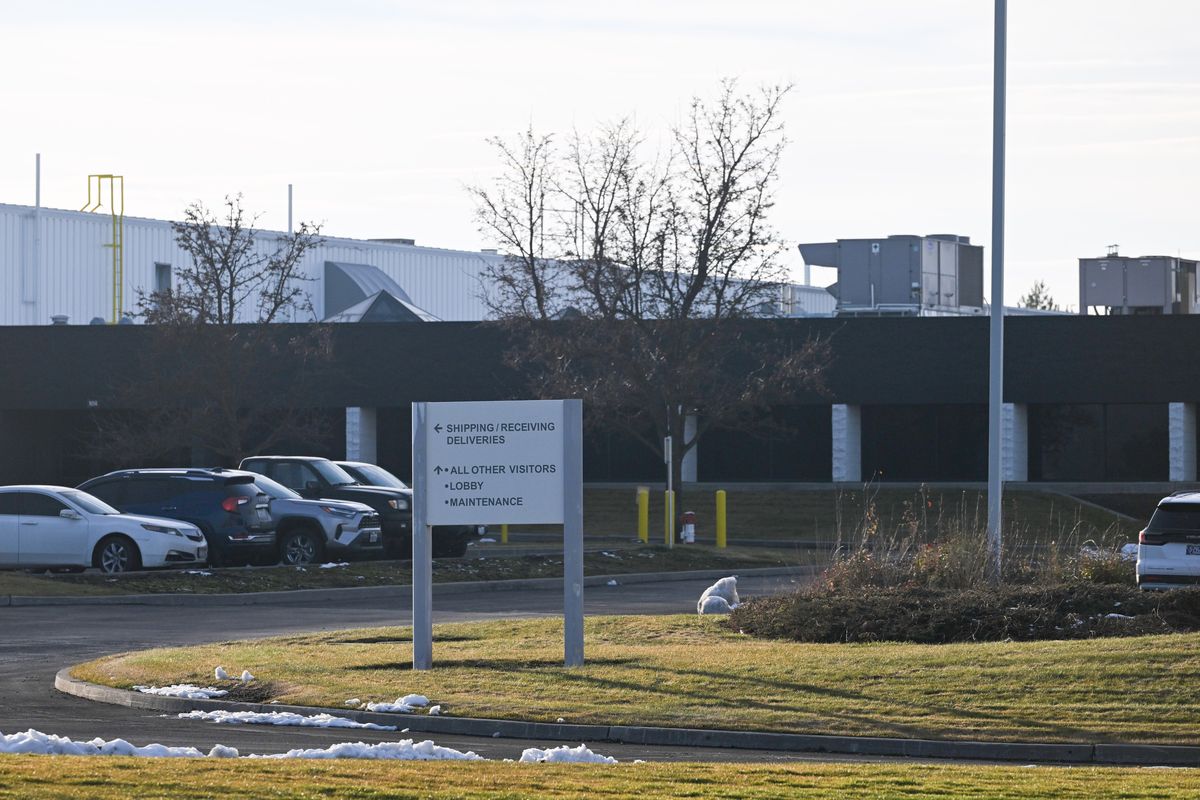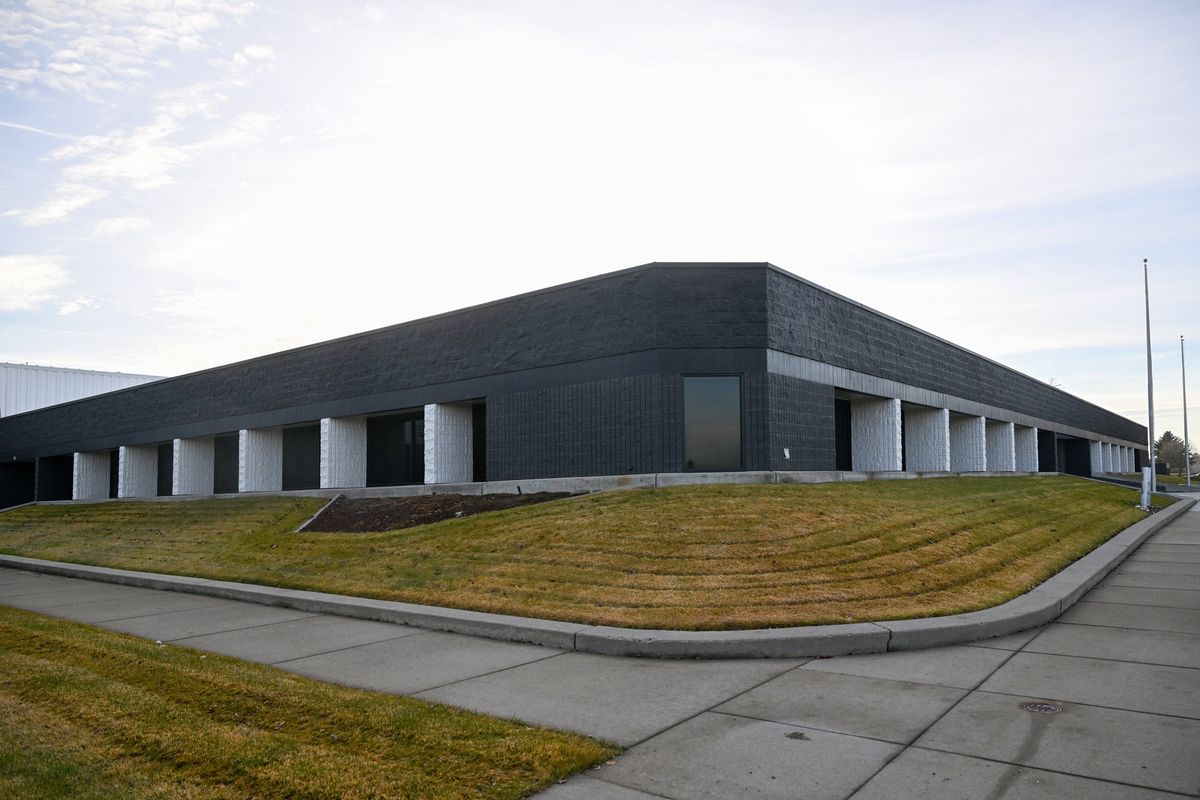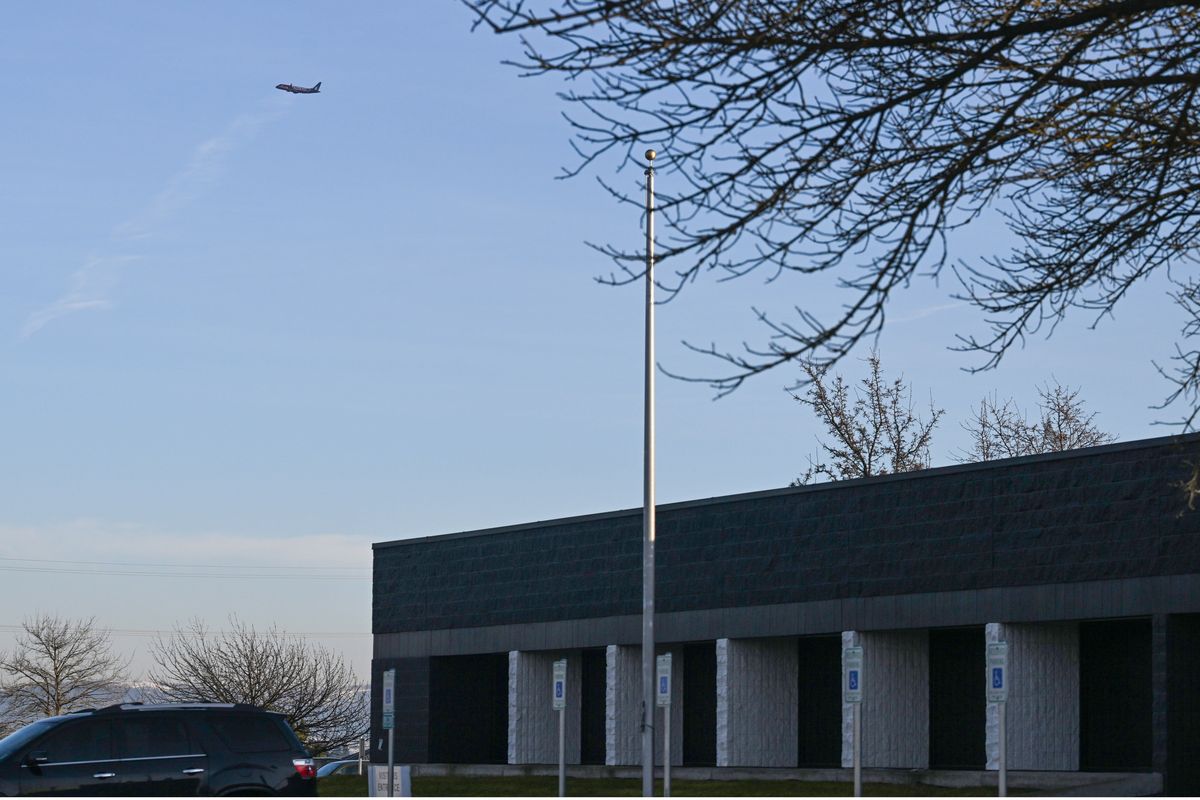Tech Hub building’s past tied to airplane interiors in Spokane
Federal money from the CHIPS and Science Act and might spur redevelopment of the mostly empty former Triumph Composite Systems offices and manufacturing plant in Airway Heights, Washington, shown Tuesday, Jan. 14, 2025. (Jesse Tinsley/THE SPOKESMAN-REVI)
The building at the center of the local winning bid to establish a tech hub started as an eastward expansion of Boeing that took advantage of another advantageous perk: The Lilac City was home to a rather influential politician at the time.
Boeing, then headquartered in Seattle, received political pressure, led by U.S. Rep Tom Foley, D-Spokane, to spread some of its aircraft manufacturing operations to the Lilac City. In 1989, Foley rose to the highest position in the U.S. House of Representatives when he was elected speaker of the House.
When Boeing opened the factory at 1514 S. Flint Road in 1990, it instantly became the Spokane area’s second-largest manufacturer.
Since that time, the 386,000-square-foot building, which was sold in 2003 to Triumph Composite Systems, mostly built interior components for Boeing airplanes.
It then sold in 2021 to Lakeside Capital Group and recently became the centerpiece for the effort to designate Spokane as a Tech Hub.
Here are a some key historical events detailing how the building was founded, its uses and how it has changed hands through the years.
October 1988: Boeing purchases 120 acres of pastureland on the West Plains that had been zoned for industrial use. At the time of the sale, the airplane maker built all airplane interior components at its Auburn fabrication center.
October 1990: Boeing opens the 386,000-square-foot facility on a 50-acre site. It’s used to build air ducts and floor panels for jet aircraft.
Some 600 Auburn workers applied to move to Spokane, but only 94 were chosen as the company pledged to hire the rest of its employees from the Spokane area.
It instantly became the Spokane area’s second-largest manufacturer behind Kaiser Aluminum.
January 2003: Pennsylvania-based Triumph Composite Systems purchases the plant for $42.2 million. Triumph supplied air duct systems, floor panels and other equipment to Airbus, Bombardier and other companies.
But as part of the purchase agreement, Triumph agreed to produce similar aircraft components for Boeing for eight years. Triumph employs more than 500 people at the factory, including about 400 unionized workers.
May 2016: Triumph locks out employees after 93% of the 400 members of the International Association of Machinists and Aerospace Workers, local 86, voted to go on strike, mostly over a two-tier wage system that began in 2013.
June 2016: More than 80% of Machinist union members vote to accept a contract offer and end a nearly six-week strike at aerospace manufacturer Triumph Composite Systems on the West Plains.
November 2016: Triumph announces its intention to sell the West Plains facility. At the time, the company was employing more than 500 workers, including about 400 members of the International Association of Machinists and Aerospace Workers, local 86, along with engineers and management.
January 2021: Triumph announces that it plans to close the factory on the West Plains by the summer of 2022. The closure was expected to affect 130 employees, indicating how the company had regressed since the strike.
March 2021: Triumph sells the factory to Lakeside Capital Group for $13 million. The transaction wasn’t officially announced for months.
Lakeside Capital Group’s founder, John Hemmingson, was instrumental in the purchase. Hemmingson founded Lakeside Capital in 1997 to attract industry and jobs to the region. The firm invests and manages real estate, industrial, agriculture, public and private equity assets.
Hemmingson is CEO of both Architerra Homes and ATC Manufacturing.
February 2023: Lakeside Companies, formerly known as Lakeside Capital Group, files for building permits to add nine overhead doors that will provide additional access to the east, west and south sides of the 386,000-square-foot former manufacturing plant.
The scope of the work also includes some interior remodeling that will allow flexible suites that can shift uses for whatever prospective tenants want or need, said Maria Lusardi, Lakeside Companies marketing director.
October 2023: The Inland NW Composites Consortium, a group of regional businesses, local governments, tribes and Gonzaga University, was among 31 groups selected from a pool of 400 applicants seeking to create a tech hub that would make it eligible for federal grant monies. If awarded, it would have used the former Boeing and Triumph building as its base of operations.
July 2024: The consortium, which included 59 members, was not among the final 12 groups eligible for up to $70 million in federal grant money from the U.S. Economic Development Administration as part of its Tech Hubs Program.
January 2025: Despite the earlier snub, the U.S. Department of Commerce awards a $48 million grant to establish an aerospace manufacturing hub in Airway Heights that promises to make the Inland Northwest a national center for composite materials used in next-generation aircraft.



